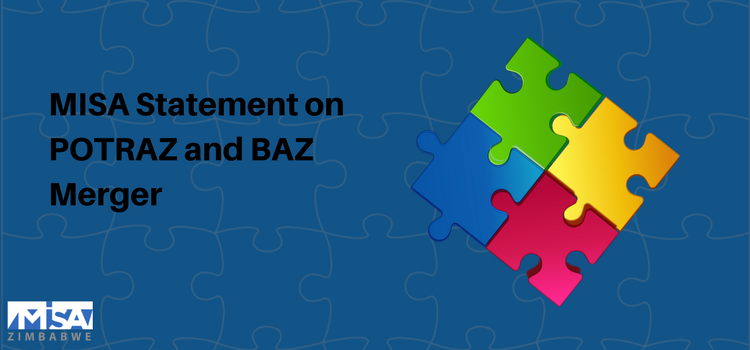MISA Zimbabwe welcomes reports that the government has approved the merging of the Broadcasting Authority of Zimbabwe (BAZ) and the Postal and Telecommunications Regulatory Authority of Zimbabwe (POTRAZ).
This announcement was made by the Permanent Secretary for Information, Media and Broadcasting Services George Charamba. He was speaking after an inspection of the proposed Maphisa digital broadcasting transmission site on 26 April 2018.
Currently, BAZ is responsible mainly for broadcasting related affairs while POTRAZ is responsible for the administration of telecommunications and internet related services. The proposed parastatal will incorporate all the areas currently covered separately by POTRAZ and the BAZ.
Advancements in technology mean that these previously distinct fields overlapped and thus no longer efficient to administer them separately.
MISA Zimbabwe has always pushed for the revision of Zimbabwe’s broadcasting laws in a manner that reflects the convergence of broadcasting and information communications technology.
This convergence should be in line with the digitisation of the broadcasting services.
Meanwhile, Charamba did not go into detail on what the merged parastatal would look like in terms of its composition or roles as well as that of Transmedia, the signal carrier.
He also did not give timelines on when the merger of BAZ and POTRAZ would be finalised.
POTRAZ was established in terms of the Postal and Telecommunications Act, while BAZ was established in terms of the Broadcasting Services Act. Government will have to establish the new parastatal by an Act of Parliament. Government’s first option is to amend either of the two Acts which established POTRAZ and the BAZ to include the expanded roles of the merged parastatal. The second option is to come up with a new Act which establishes the merged parastatal.
MISA Zimbabwe is therefore appealing for the expeditious conclusion of the digitisation process, which is almost two years behind the ITU imposed deadline of 7 June 2015.
It is MISA’s hope that digitisation will open up the broadcasting field to private players as well as community-based broadcasters. This will only be possible if Zimbabwean media laws and policies are amended in tandem with the media freedoms enshrined in the country’s 2013 constitution.
End









